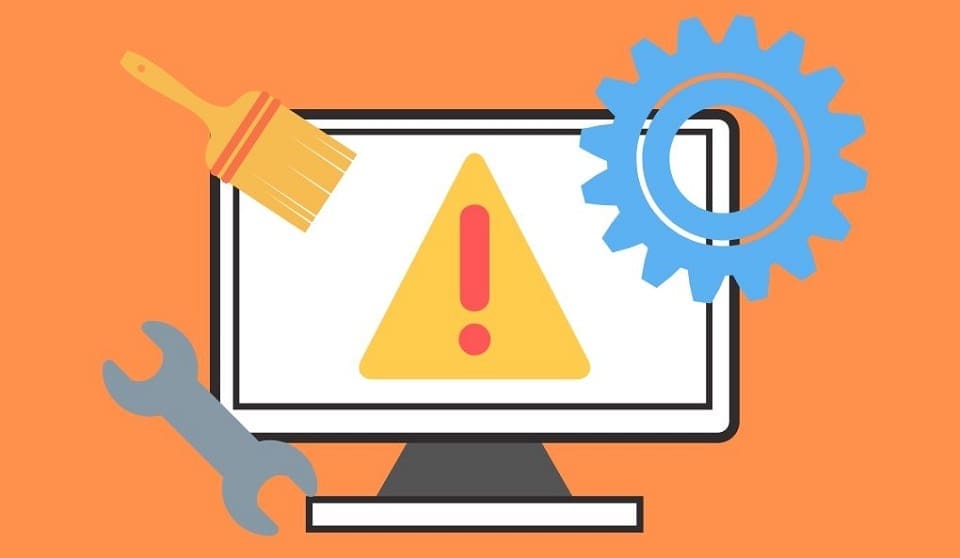A lot of bloggers tend to make similar mistakes, especially in their early days blogging.
Let’s review the most common SEO mistakes with blogging, what harm these mistakes can cause, and how you can avoid the same gaffs yourself.
#1: Choosing the Wrong Keyword(s)
This is where it all starts.
A large percent of bloggers (including the younger me) target keywords with the highest search volume.
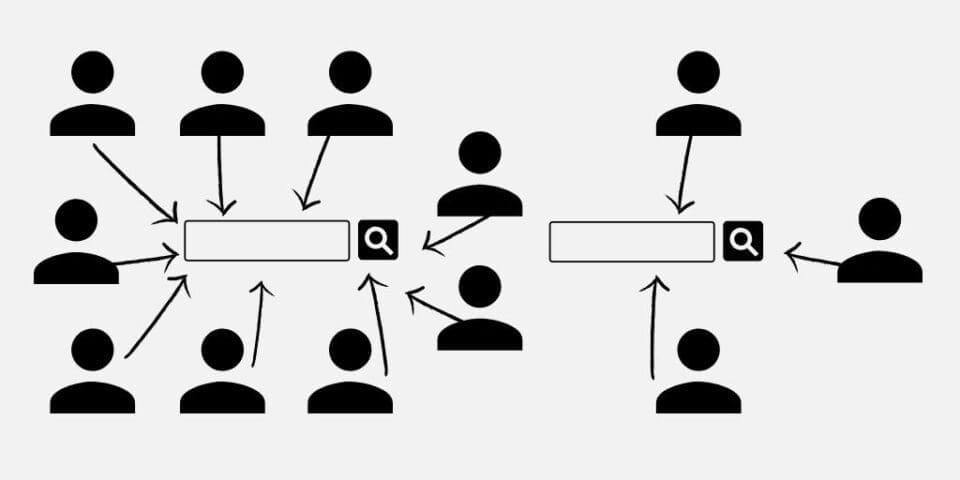
It doesn’t matter what niche you in. Over time, you learn how hard it is to reach the first page for the keywords with large search demand.
And it’s even harder to achieve the coveted top spot on the SERP.
This shouldn’t be surprising. Every bigger player within your industry is targeting those keywords.
Another issue to consider: when you do manage to generate the traffic from those keywords, it’s unlikely to achieve the goal you desire.
Trust me, I made the same mistake for years.
Instead of making the same mistakes, start from the bottom. Define the goal you are pursuing up front.
Your goal could be anything from creating revenue from AdSense, to marketing affiliate products, to generating leads for your business. You can even sell your own products to the people visiting your website.
After you define your goal, target only those keywords which can help you reach your goal.
So, now, how do you do it?
In short:
If its for PPC ads, the keywords you target should have higher Ad CPC bidding and competitions. If its for generating leads to sales, it must resonate with the user’s intent behind that keyword.
Most often, you should be targeting long tail keywords which have smaller search volumes. The best way to get in front of this search demand is creating a ton of content for your blog.
Always ensure that you target long-tail keywords, because these options are easier to rank for. “Head terms” are much more difficult to pursue in comparison.
#2: Ignoring Page Loading Speeds
Google has clearly stated that page loading speed is one of the many search ranking factors.
Now here is a thing: your website should load as fast as your competitor’s websites do, preferably even faster.
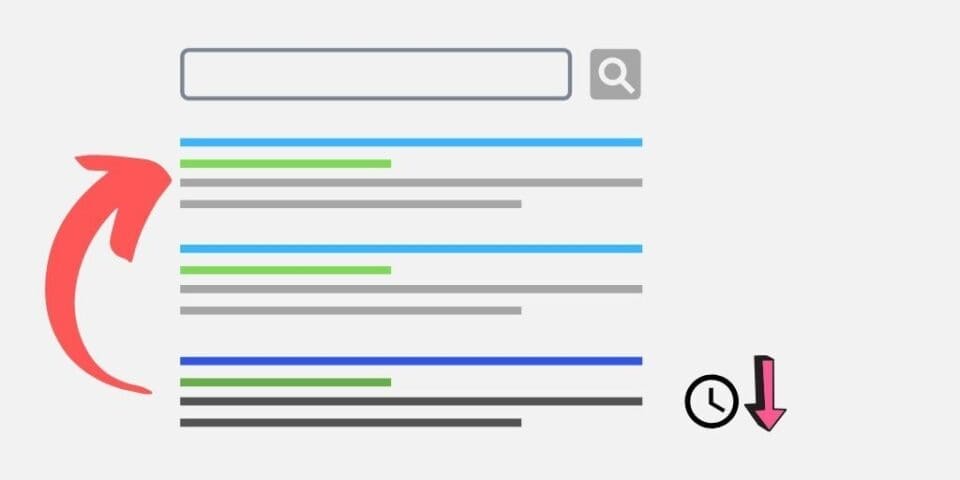
If you want to rank higher than your competitors, you simply can’t ignore website performance. Without elite loading times, you won’t be able to compete on the SERPs.
#3: Not Focusing on Content and Readability
Surely you’ve heard the well-known phrase: “Content is KING”.
But have you ever stopped to consider the impact of its readability, as a part of your approach to content generation.
Your blog won’t be effective until your content is highly readable.
How do I define content readability?
It’s pretty simple!
Take a look at this:
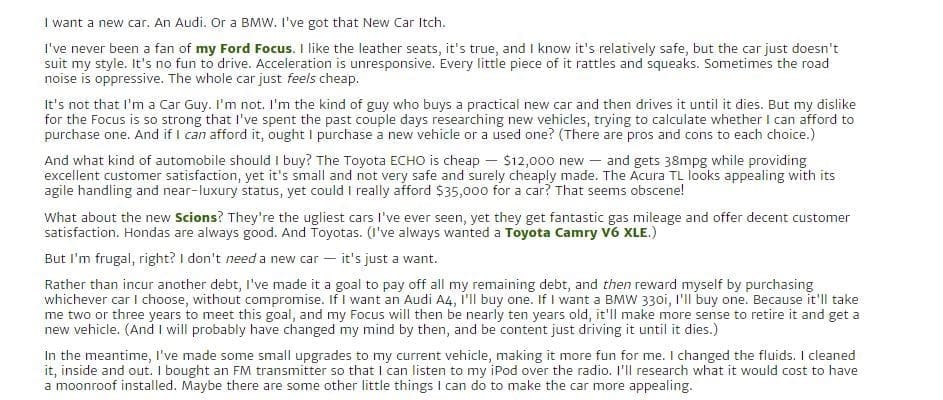
And then, take a look at this as well:.
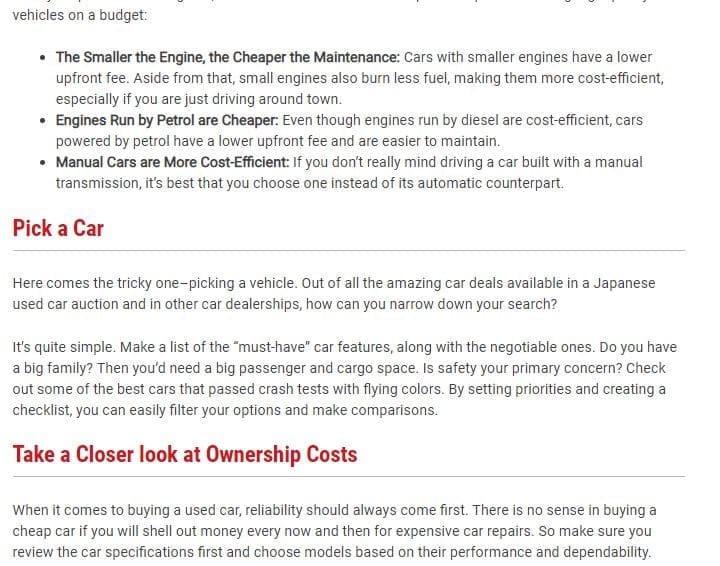 Now I ask you which one would you prefer to read?
Now I ask you which one would you prefer to read?
Of course, it is the second one.
Here is the catch: No one likes to read a content which has words stacked up like bricks on the wall.
Unfortunately, this is one of the worst SEO mistake I see bloggers doing. Even though the content may contain a ton of value, it can sometimes be simply unreadable!
Ideally, you will divide and frame your content into smaller chunks. This way, your readers can easily skim it over and still understand the points you are making.
#4: Keyword Stuffing
Let me come clean on this one. In my earlier days blogging, I stuffed keywords all over the content, before I knew how poorly Google looks on that behavior.
Keyword stuffing is when you put the search terms you want to rank for into your content, again and again, regardless of their relevance to the post or page where you are putting them.
Why is this bad, aside from Google’s disdain for it? First, it reduces the value of the content you’re creating in the first place. And even worse, it sound like a robot wrote it, as opposed to a human.
Take a look at an example of keyword stuffing below:
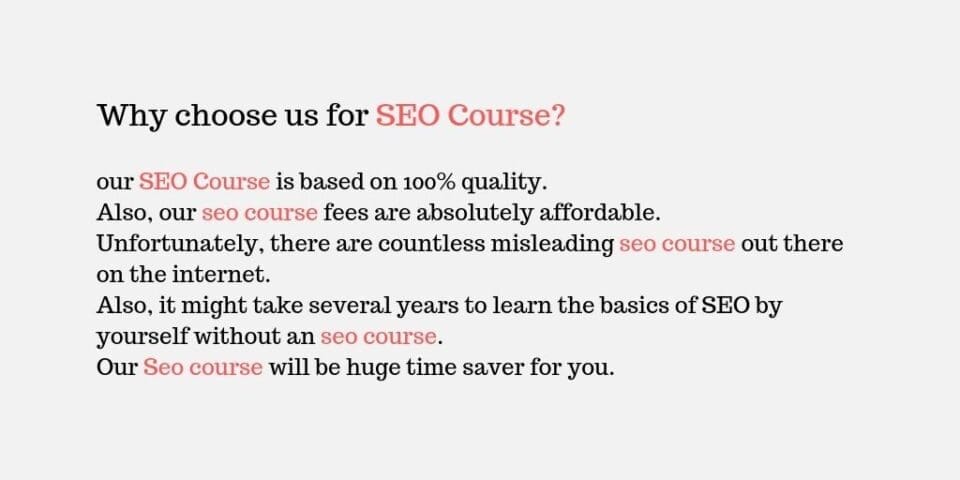
Google has said that irrelevant keywords stuffing within your content can certainly harm your content’s ability to rank.
#5: Writing Content That is Too Short to Rank
Brian Dean of Backlinko analysed one million Google search results.
He found that content with more word count is the most likely to rank.
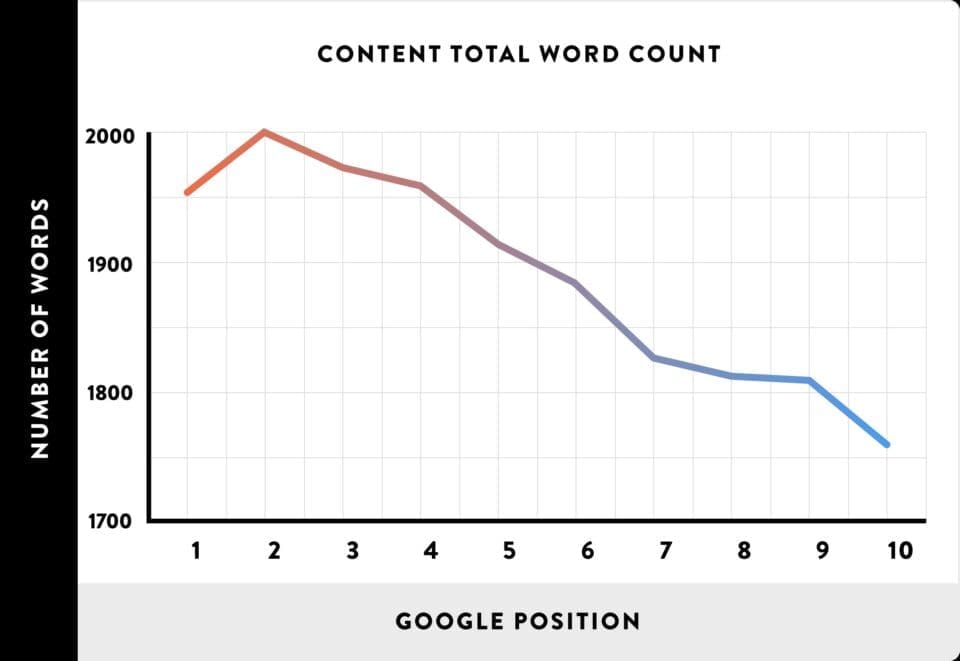
In fact, he found that the average word count of a Google first page result is 1,890 words.
#6: Overlooking Internal Links
Internal linking is key for providing an SEO boost to your most important pages.
Sadly, I see far too many bloggers and SEOs not taking internal linking seriously, when they consider it at all. And even for those who do practice it, they often do it wrong.
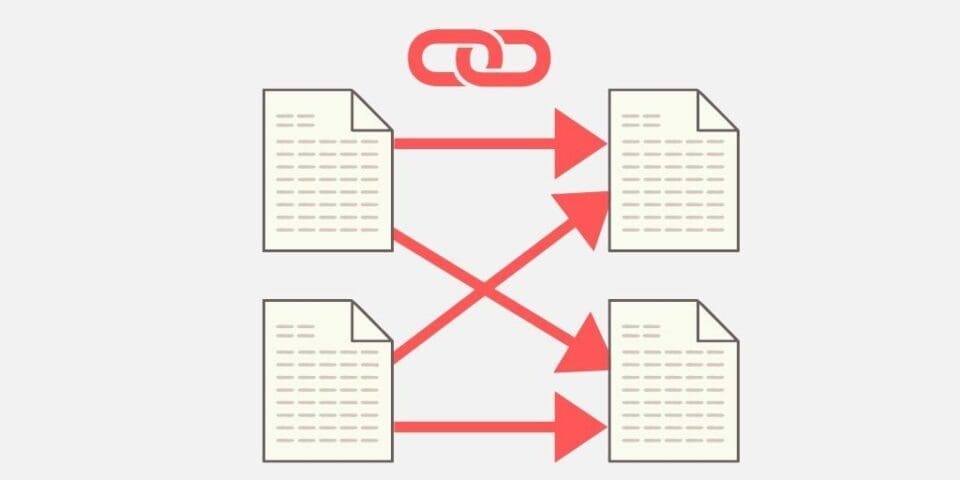
Now here is the thing: When you link internally to your other content, you must ensure both the link as well as the anchor text is relevant to the context of the link target.
When you are the one to curate as well as create content, you have the biggest advantage while doing internal linking.
When creating internal links, you can and should ensure that it is highly relevant to the content.
Over time, as you keep working on it, your blog will grow with regard to volume of content. Those internal links can then be a huge boost to both your website authority and organic performance.
#7: Not Optimizing Title Tags and Meta Descriptions
Most of the blogging platforms like WordPress, Blogger, etc. provide a standard feature that makes your <h1> tag and <Title> tag same through automation.
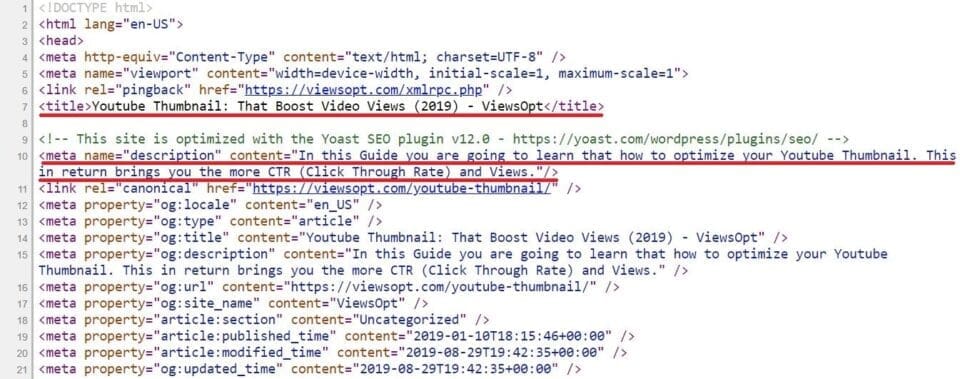
However, you can modify your <title> as well as Meta Description which are shown in the SERP.
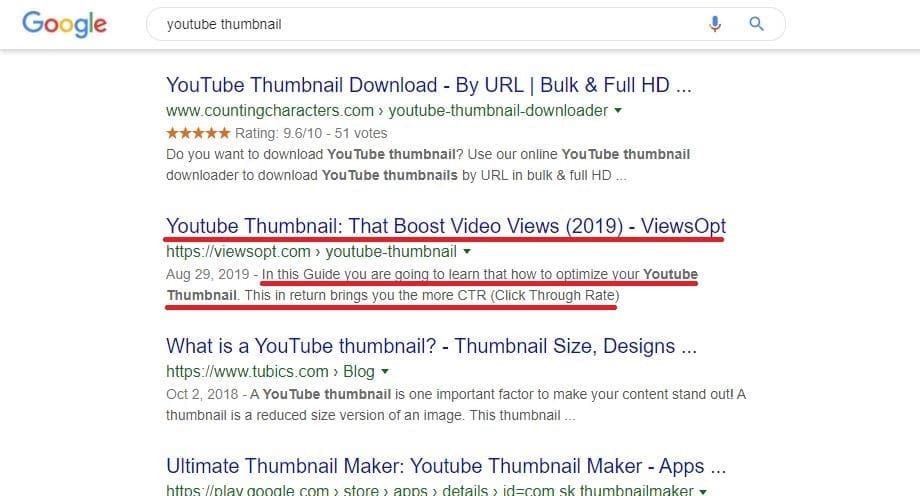
Also, when you fail to customize a meta description for any page or post, the search engine displays a random snippet of text from inside your content.
Bloggers who do not customize the title or meta description end up getting a low Click Thru Rate (CTR) from the SERPs.
If you decide not to customize either the Page Title or Meta Description, you are certainly missing an opportunity to maximize that CTR when you do show up on competitive SERPs.
You can even A/B test titles and descriptions to see what works best.
For my own blog, I create a batch of three titles and meta descriptions for each new piece of content, and then test each of them for a month.
I keep the one that gets the best CTR moving forward after the test completes.
#8: Unoptimized Images
Images and other multimedia are most important in order to keep users engaged on your blog. But optimizing them is more important when it comes to SEO.
The mistake most bloggers make is just slapping images randomly on a related post or page to enhance the content.
This might get your users to stick around, but you might be losing an opportunity to better optimize your on page SEO.
In order to optimize your images for the SEO, they need to load as fast as possible. Moreover, you can use techniques like lazy loading to optimize it even further than basic image sizing and compression.
When you implement lazy loading, make sure that the image is visible to Google. If the image is not visible to Google’s crawlers, that image simply won’t affect your SEO at all.
Also, never leave your image ALT-tag empty. Be sure to include the target keyword and LSI along with modifiers that are relevant to the context of the image, and ensure the alt tag also describes the image itself.
Typically Google can only crawl this alt text and the filename for the image itself to determine what’s in the image.
#9: Poor Content Promotion
Many people do not even consider content promotion as part of their blog’s success.
But, it does play a very important role in SEO as well as increasing traffic in the long term.

Content marketing is what brings you the most powerful backlinks. If you also stay diligent about targeting specific users in your early days, you should see good SEO impact as well as engagement.
However, this will only work for you when you contribute and help others within your community.
In order to do so, you must participate in Q&A sites and Forums within your space.
Contribute to other bloggers with your ideas and high quality guest posting content.
The better and more selflessly you do this, the better you will support traffic growth in the long term.
#10: Chasing Domain Authority Only
Domain Authority is a concept developed by MOZ in order to estimate what Google does to rank websites.
You can use the Domain Authority metric in order to see if you are heading in the right direction.
But, overfocusing on it may lead you to ignore other areas of importance. It gets even worse when you start getting into black-hat SEO tactics just to boost your Domain Authority.
DA matters when you are targeting highly competitive keywords, as it should indicate whether or not you will be able to rank for those terms at all.
But just keep in mind that it’s only one metric among many, and not the only thing you should be focusing on to optimize your website for the search engines.
#11: Creating Low-quality Backlinks and Buying Links
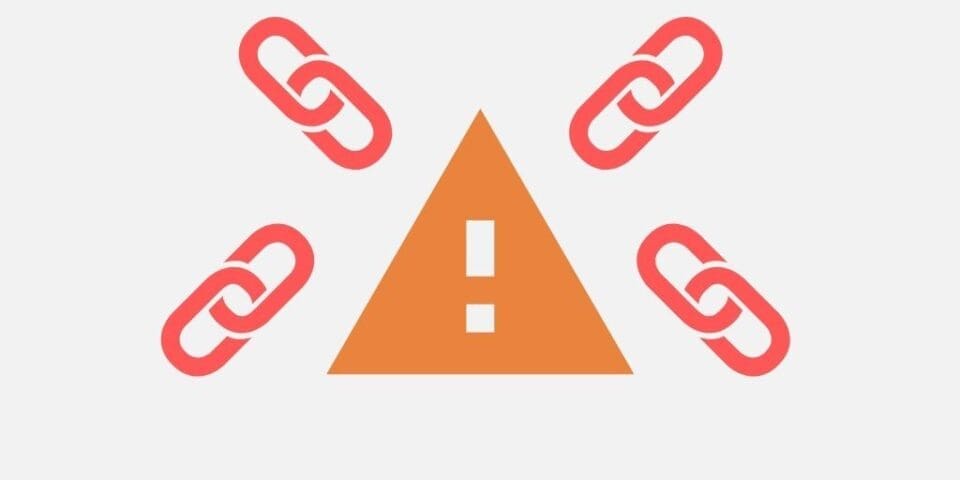
It is easy to create backlinks by 100 profiles within 100 websites by copying and spinning the content.
Also, its even easier to pay someone who would blast out 6,000 or even 60,000 backlinks for you.
A lot of bloggers eventually decide to try one of these techniques so they can build links easily, and at scale.
Even I too created plenty of profiles back in 2014 for this very purpose: to build a bunch of links pointing to my website.
No one was there to guide me back then, so I fell for it!
Google has made it abundantly clear. If a website owner is found manipulating a site’s ranking on Google, they will certainly lose rankings on the SERPs.
In short: You might get a nice, quick ranking and ton of traffic to your blog, but it certainly won’t last.
In the end, you are going to get burned. It is like digging your own grave.
Conclusion
SEO is heavily dependent on how you build your user experience, how relevant your content is, and what value you are offering to readers and potential link partners.
Be sure not to cross the boundaries spelled out above, and your blog would keep growing in the long run.
Now, it’s the time i ask you for a favor. If you learned something new from this post, make sure to share it on your favorite social platform. Thank you for reading!
All Images provided by the author under his or her own license.
Disclaimer: The views and opinions stated in this post are that of the author, and Return On Now may or may not agree with any or all of the commentary.
Farhan Sheikh
Latest posts by Farhan Sheikh (see all)
- 11 SEO Mistakes Bloggers Make And How To Avoid Them - December 17, 2019

